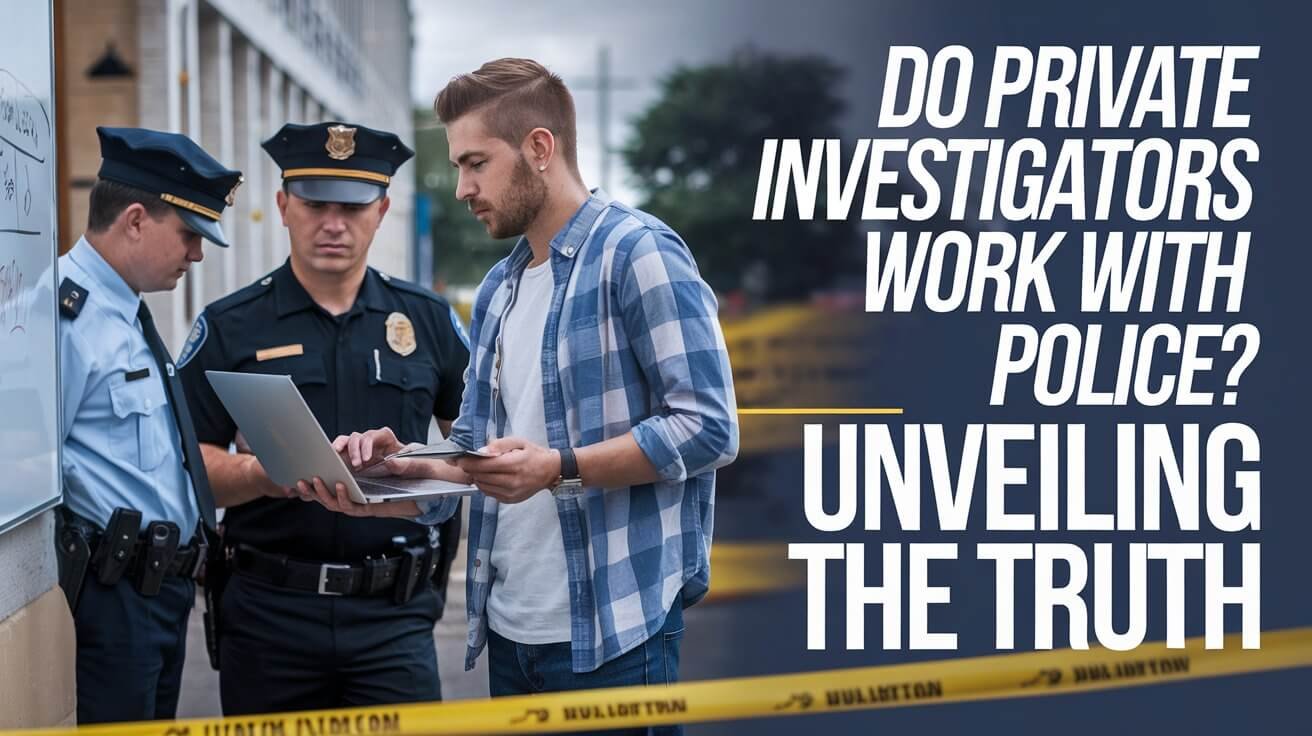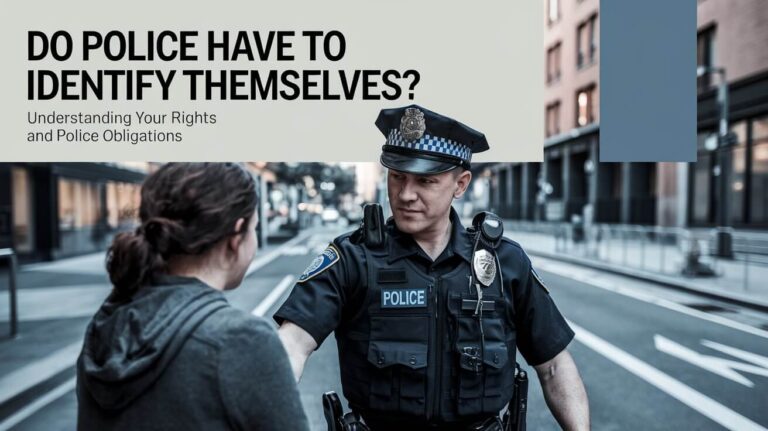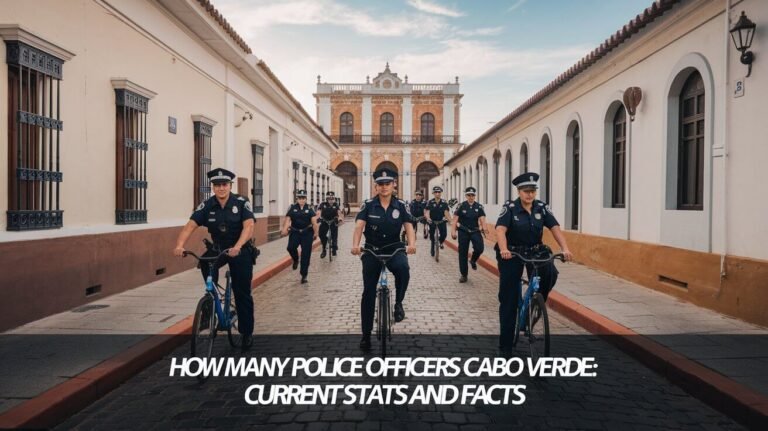Do Private Investigators Work with Police? Unveiling the Truth

Private investigators and police officers collaborate to solve complex cases and catch criminals. PIs and law enforcement have distinct roles but can work together effectively. Their partnership combines unique skills and resources for better results. This guide examines their collaboration, its advantages, difficulties, and practical examples.
The Distinct Roles of Private Investigators and Police Officers
To understand how private investigators work with police, it’s crucial to first grasp their individual roles and responsibilities.
Defining the Private Investigator’s Scope of Work
Private investigators, often called PIs, are licensed professionals hired by individuals, businesses, or organizations to gather information and conduct investigations. Their work typically involves:
- Surveillance and monitoring
- Background checks
- Locating missing persons
- Investigating fraud or infidelity
- Gathering evidence for legal cases
PIs use various tools and techniques to collect information, including interviews, public records searches, and advanced technology. They operate within the bounds of the law but don’t have the same authority as police officers.
Police Officers’ Responsibilities and Authority
Police officers are sworn law enforcement agents employed by government agencies. Their primary duties include:
- Responding to emergencies
- Investigating crimes
- Making arrests
- Maintaining public order and safety
- Testifying in court
Unlike private investigators, police officers have the power to arrest suspects and enforce laws. They also have access to official databases and resources not available to the public or PIs.
Key Differences Between PIs and Law Enforcement
While both PIs and police officers work to uncover the truth, their methods and limitations differ:
- Legal authority: Police can make arrests; PIs cannot.
- Access to information: Police have broader access to official databases.
- Client focus: PIs work for specific clients; police serve the public.
- Scope of investigations: PIs often focus on specific cases; police handle a wide range of criminal matters.
Scenarios Where Private Investigators and Police Collaborate
Private investigators and police often join forces in certain types of cases where their combined expertise can lead to better results.
Missing Persons Cases: A Joint Effort
When someone goes missing, time is critical. PIs can complement police efforts by:
- Conducting extensive background research
- Interviewing additional witnesses
- Monitoring social media and online activity
- Performing surveillance in areas outside police jurisdiction
This collaborative approach can significantly increase the chances of locating missing individuals quickly and safely.
Fraud Investigations: Combining Expertise
Complex fraud cases often benefit from the combined skills of PIs and law enforcement. Private investigators can:
- Analyze financial records in detail
- Conduct undercover operations
- Gather evidence from various sources
- Provide expert testimony in court
By working together, PIs and police can build stronger cases against fraudsters and protect victims more effectively.
Complex Criminal Cases: When PIs Provide Valuable Insights
In some intricate criminal investigations, private investigators can offer unique perspectives and resources. They might:
- Re-examine cold cases with fresh eyes
- Uncover new leads through unconventional methods
- Provide specialized knowledge in niche areas
- Assist in international investigations where jurisdictions overlap
This collaboration can breathe new life into stalled cases and lead to breakthrough discoveries.
How Private Investigators Assist Law Enforcement
Private investigators bring valuable skills and resources to the table when working with police. Their contributions can significantly enhance the effectiveness of investigations.
Gathering and Analyzing Information
PIs excel at collecting and making sense of diverse information. They can:
- Conduct in-depth research using public and proprietary databases
- Analyze patterns and connections that might not be immediately obvious
- Compile comprehensive reports that synthesize complex data
This analytical prowess can help police officers focus their efforts more efficiently and make informed decisions about case direction.
Conducting Surveillance and Background Checks
Surveillance is a cornerstone of many PI investigations. When working with police, private investigators can:
- Monitor suspects without drawing attention
- Document activities and gather photographic or video evidence
- Perform thorough background checks on persons of interest
These efforts can provide crucial leads and evidence for ongoing police investigations.
Providing Additional Resources and Manpower
Law enforcement agencies often face budget and staffing constraints. Private investigators can:
- Take on time-consuming tasks, freeing up police resources
- Offer specialized equipment or technology not available to the police
- Provide additional personnel for large-scale operations
This support allows police to allocate their resources more effectively and tackle cases they might otherwise struggle to handle.
Legal and Ethical Considerations in PI-Police Collaborations
While partnerships between private investigators and police can be highly effective, they must navigate a complex landscape of legal and ethical considerations.
Navigating Privacy Laws and Regulations
Both PIs and police must adhere to strict privacy laws when conducting investigations. Key considerations include:
- Obtaining proper consent for surveillance activities
- Respecting boundaries in digital investigations
- Ensuring compliance with data protection regulations
Violating these laws can jeopardize cases and lead to serious legal consequences for both parties.
Maintaining Confidentiality and Professional Standards
Trust is paramount in PI-police collaborations. Both sides must:
- Protect sensitive information from unauthorized disclosure
- Maintain clear boundaries between professional and personal relationships
- Uphold the highest standards of integrity and ethics
Breaches of confidentiality or professional conduct can undermine investigations and damage reputations.
Ensuring Admissibility of Evidence in Court
For evidence to be useful in legal proceedings, it must be collected and handled properly. This involves:
- Following proper chain of custody procedures
- Documenting all investigative activities meticulously
- Avoiding any actions that could be construed as entrapment
By working together closely, PIs and police can ensure that their combined efforts produce evidence that will stand up in court.
Challenges in Private Investigator and Police Partnerships
Despite the potential benefits, collaborations between private investigators and law enforcement aren’t without their hurdles.
Overcoming Communication Barriers
Effective communication is crucial for successful partnerships. Challenges may include:
- Different terminology and jargon between PIs and police
- Varying protocols for sharing information
- Potential misunderstandings about roles and expectations
Establishing clear communication channels and guidelines can help mitigate these issues.
Addressing Potential Conflicts of Interest
Sometimes, the goals of private investigators and police may not align perfectly. Potential conflicts can arise from:
- Differing priorities between client interests and public safety
- Competing investigations into the same matter
- Disagreements over case strategy or resource allocation
Open dialogue and clear agreements can help prevent and resolve these conflicts.
Balancing Different Operational Methods
PIs and police often have distinct ways of working, which can lead to friction. Differences may include:
- Varying levels of bureaucracy and decision-making processes
- Different approaches to risk assessment and management
- Contrasting views on the use of certain investigative techniques
Finding common ground and leveraging each other’s strengths is key to overcoming these operational differences.
Benefits of PI and Law Enforcement Cooperation
When private investigators and police work together effectively, the results can be impressive. This collaboration offers several key advantages.
Enhancing Case Resolution Efficiency
By combining forces, PIs and police can:
- Cover more ground in less time
- Approach cases from multiple angles simultaneously
- Identify and pursue leads more quickly
This increased efficiency can lead to faster case resolutions and better outcomes for all involved.
Leveraging Complementary Skill Sets
PIs and police officers bring different strengths to the table. Together, they can:
- Blend investigative techniques from both private and public sectors
- Combine specialized knowledge in various fields
- Offset each other’s limitations for more comprehensive investigations
This synergy of skills can lead to breakthrough in cases that might otherwise remain unsolved.
Improving Public Safety Outcomes
Ultimately, successful collaborations between PIs and police benefit the wider community by:
- Solving more crimes and bringing offenders to justice
- Recovering stolen property or missing persons more often
- Deterring criminal activity through increased investigative capabilities
These positive outcomes contribute to safer communities and increased public trust in law enforcement.
Real-World Examples of Successful PI-Police Collaborations
To illustrate the potential of PI-police partnerships, let’s look at some real-world case studies.
Case Study 1: Solving a Cold Case
In 2018, a private investigator working with local police helped solve a 20-year-old murder case. The PI’s persistence in re-examining old evidence and interviewing witnesses led to a breakthrough that allowed police to make an arrest.
Case Study 2: Uncovering Corporate Espionage
A joint effort between corporate PIs and federal law enforcement uncovered a massive international espionage ring targeting U.S. tech companies. The PIs’ expertise in digital forensics complemented the FBI’s resources, resulting in multiple arrests and the protection of valuable intellectual property.
Case Study 3: Locating a Missing Person
When a college student went missing in 2020, her family hired a PI to assist in the search. The investigator’s social media analysis and ground searches, combined with police efforts, led to the student’s safe recovery within a week.
The Future of Private Investigator and Police Partnerships
As technology evolves and crime becomes more complex, the relationship between PIs and law enforcement is likely to grow and change.
Emerging Technologies Shaping Collaborative Investigations
Advancements in technology are opening new avenues for PI-police cooperation:
- AI and machine learning for data analysis
- Improved surveillance and tracking tools
- Enhanced digital forensics capabilities
These technologies can help both PIs and police work more efficiently and effectively together.
Potential Changes in Legal Frameworks
As collaborations become more common, we may see changes in laws and regulations:
- Clearer guidelines for information sharing between PIs and police
- Updated privacy laws that address new investigative techniques
- Formal recognition of PI contributions in criminal investigations
These legal changes could provide a more solid foundation for future partnerships.
Training and Resource Sharing Initiatives
To foster better collaboration, we might see:
- Joint training programs for PIs and law enforcement
- Shared databases and information systems
- Regular conferences and workshops to exchange best practices
These initiatives can help build stronger, more effective relationships between private investigators and police.
FAQs About Private Investigators Working with Police
Here are answers to some common questions about PI-police collaborations:
Can PIs Access Police Databases?
Generally, private investigators don’t have direct access to police databases. However, they can often obtain similar information through public records and commercial databases.
Do Police Hire Private Investigators?
While uncommon, police departments occasionally contract private investigators for specific tasks or to provide specialized expertise not available in-house.
How Often Do PIs Collaborate with Law Enforcement?
The frequency of collaboration varies widely depending on location, case type, and individual relationships. Some PIs work regularly with police, while others rarely do so.
Conclusion: The Synergy Between Private Investigators and Police
Private investigators and police often work together to solve crimes. Each brings different skills and tools to the job. While they sometimes face challenges, working together usually helps them do better work. As crimes get more complex, this teamwork becomes even more important.
In the future, we’ll likely see more cooperation between private investigators and police. This is because of new technology and trickier crimes. By working together, they can do a better job of keeping people safe and catching criminals.
This partnership between private investigators and police is important for solving crimes and protecting communities. As they continue to work together, it will change how investigations and police work are done in the future.






